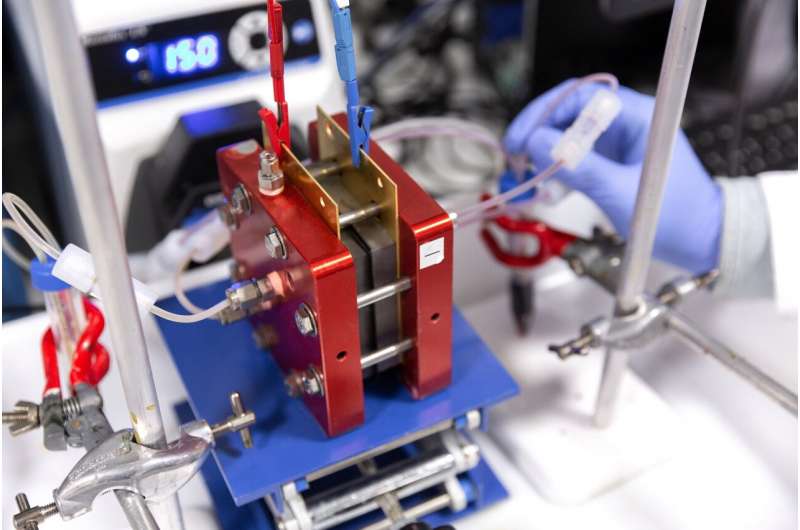New membrane technology to boost water purification and energy storage
2021-10-20
Imperial College London scientists have created a new type of membrane that could improve water purification and battery energy storage efforts. The new approach to ion exchange membrane design, which is published today in Nature Materials, uses low-cost plastic membranes with many tiny hydrophilic ('water attracting') pores. They improve on current technology that is more expensive and difficult to apply practically. Current ion exchange membranes, known as Nafion, are used to purify water and store renewable energy output in fuel cells and batteries. However, the ion transport channels in Nafion membranes are not well defined and the membranes are very expensive. In contrast, low-cost polymer membranes have been widely used in the membrane industry in various contexts, from removal of salt and pollutants from water, to natural gas purification-but these membranes are usually not conductive or selective enough for ion transport.  Now, a multi-institutional team led by Imperial's Dr. Qilei Song and Professor Neil McKeown at the University of Edinburgh has developed a new ion-transport membrane technology that could reduce the cost of storing energy in batteries and of purifying water. They developed the new membranes using computer simulations to build a class of microporous polymers, known as polymers of intrinsic microporosity (PIMs), and alter their building blocks for varying properties. Their invention could contribute to the use and storage of renewable energy, and boost the availability of clean drinking water in developing nations. Lead author Dr. Song, of Imperial's Department of Chemical Engineering, said: "Our design hails a new generation of membranes for a variety of uses-both improving lives and boosting storage of renewable energy such as solar and wind power, which will help combat climate change."
Now, a multi-institutional team led by Imperial's Dr. Qilei Song and Professor Neil McKeown at the University of Edinburgh has developed a new ion-transport membrane technology that could reduce the cost of storing energy in batteries and of purifying water. They developed the new membranes using computer simulations to build a class of microporous polymers, known as polymers of intrinsic microporosity (PIMs), and alter their building blocks for varying properties. Their invention could contribute to the use and storage of renewable energy, and boost the availability of clean drinking water in developing nations. Lead author Dr. Song, of Imperial's Department of Chemical Engineering, said: "Our design hails a new generation of membranes for a variety of uses-both improving lives and boosting storage of renewable energy such as solar and wind power, which will help combat climate change."



